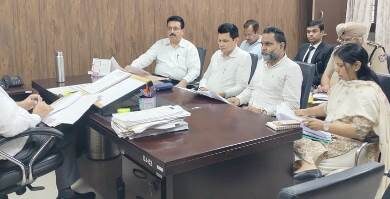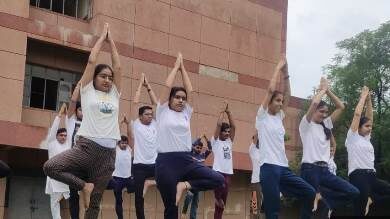THE LENS OF HISTORY by Saikrit Gulati

THE LENS OF HISTORY by Saikrit Gulati
The modern world is a rapid one. It waits for none, nor does it cease at a certain point. In this era driven by technology, it is close to impossible to find a discipline that does not undergo changes at a break neck speed. On one hand, the spheres of Sciences and Technology are constantly undergoing rapid experiments and inventions and on the other, new discoveries rock various spheres of social sciences. However, history is one discipline which remains the same at its core. Even though some new facts are discovered by excavations at various intervals, the foundation never changes. A fact imprinted on the books of history can never change like a river’s course, nor can it disappear like plain snow and ice.
The problem that arises is that “If History doesn’t change, why the eras of historians vanish?” My unpretentious rejoinder is that there is a part of our history that is constantly under change- the lens of history. Taking a cue from the Law of Conservation of Energy, we can say that History cannot be created nor be destroyed, but can only change in perspective. The lens through which we view history is the perspective to view the facts. How our view of each and every aspect of the bygone days and how it is propounded to the entire world is constantly under modification. This lens is clouded often, but rarely is it clear and unbiased. Just like any other lens, clouding of our perspective will create aberrations. Perhaps, it is much more apt to refer to our perspective as a mirror, for history is an expression of how we see ourselves, rather than how we see other people and their history. History is an identity of us. We are formed by our culture, which in turn is shaped by history.
For long, history has been a discipline neglected by the people, forgotten by the fast-moving and present world. However, history is no despicable subject. It is a key to the time centuries ago. It is a guide to the upcoming future of all of humanity, across the universe. As a student, I have witnessed the immense reluctance among many of my peers about studying history. The argument about the relevance of the past is a never-ending one. However, I firmly hold that it is only with the aid of history can we discover other disciplines. Just think of it for a while. Newton, Einstein, Edison, Aryabhatta, Bhaskara, Ramanujan and their contemporaries form a major part of all the discoveries which have given form to the mathematics and science of today. However, the development of the fields of science and the lives of these well-known scientists and mathematicians is derived from the study of history.
It would, perhaps, be correct to assert that our perspective of viewing history as a subject is a major cause of this widespread hesitation to study about the past. Our education systems and textbooks have brought us to think about history, just a study of kings and empires. This is manifested by the fact that all children love bedtime stories about the great battles that were fought in the previous eras, but the description of these same epic battles is made so uninteresting in textbooks that all the interest recedes, and the misconception of history being boring takes over. It is not very difficult to realize that nothing in this world exists without a past. The study of the past commands a preponderant influence over the shape which a subject is moulded into in the future. There is no challenging the statement that everything is shaped by history. Giving a jejune response to the past will only become an impediment in the path to the world’s future growth. As Carl Sagan remarked, “You have to know the past to understand the present.”
In light of the above facts, the need for an unbiased historical mirror, which is free from any aberrations, is conspicuous. We need to analyze the facts and mustn’t jump to conclusions sans proof. For a clear future ahead, it is absolutely necessary to have a clear understanding of the past. Finally, it feels right to conclude with a saying from the pen of Marcus Garvey, “A people without the knowledge of their past history, origin and culture is like a tree without roots.”
Saikrit Gulati
Class 8
St. John’s High School, Chandigarh
Chandigarh
Tel: 7743098455



